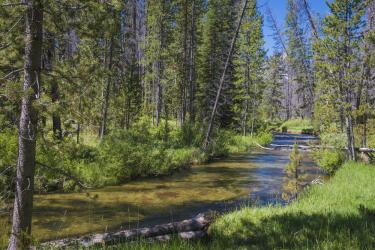What If I Never Figured Out My Basis?
If, like many woodland owners, you didn’t know about basis when you acquired your property, you may never have determined what your basis is.
Don’t worry—there’s no penalty for not knowing your basis, and you can usually calculate it even long after obtaining your property.
Chances are you know how much you paid for your property when you bought it (if you received it that way), or can easily locate the documents and resources that contain that information. You can use those facts and figures to determine your total basis.
If you never separated that total basis between the timber and the land that can usually be fixed too. You will need to:
Figure your total basis by checking to see how much you paid for your property.
Determine the volume of timber on your property when it was purchased, either through an inventory from around the time you acquired it, or (if there is no inventory) by consulting with a forester who can estimate with reasonable certainty what was on your land at the time.
Calculate the value of that timber by locating stumpage price information that time – there are several publications that record that information. In most cases, you can use the average price for your region within the state for the quarter you acquired the property. If you multiply that price by the volume of merchantable timber in your woods at that time, that will give you an estimation of the fair market value of the timber back then. You can then proceed with calculating the percentage of the total fair market value that timber contributed, and allocate your basis after the fact.
If you received your property as a gift, inheritance, or through an exchange, it may be necessary to consult with an accountant or attorney to figure out the basis and how it should have been allocated at the time the property was received.
Calculating your basis long after acquiring your property can involve considerable research and expert help, so it’s important to weigh the pros and cons of going to the trouble. The time and expense associated with retroactively determining basis may be greater than the benefit from having the basis allocated. It’s up to you to decide if it’s worthwhile for you and your woods.
Learn More
How can I get more tips?
It’s simple! Enter your email below.

